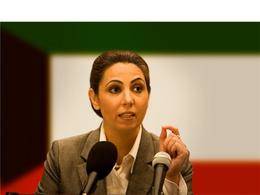[pullquote]Youth Unemployment in the MENA Region: Are economic reforms and regional trade agreements the key to political and social stability?[/pullquote]
In a recent article on the World Economic Forum website, Rola Dashti offers an inside perspective regarding the labor market in the Middle East and North Africa (MENA) region. She points out that although the region’s workforce has the fastest annual growth rate worldwide (2.7% over 10 years), that it is also suffering from the highest youth unemployment rate (about 25%). This ranks youth unemployment as one of the top MENA region challenges along with political transitions and societal tension.
Dr. Dashti, who is the former Kuwaiti Minister of State Planning and Development Affairs, states that youth unemployment is directly correlated to a non-functional education system, mismatches in skill and opportunities, a rigid labor market, and an ever-expanding labor force. In addition, she notes that as current reforms have not succeeded in targeting the private sector to boost the economy, government institutions are employing the majority of the MENA area’s youth. Dr. Dashti has several recommendations: adequate reforms to ensure sustained job-intensive growth, refocusing efforts on education and training as well as enhancing labor market flexibility.
“You need to create opportunities for entrepreneurship and be more supportive of small and medium enterprises,” she says. “We need to have policies that support the growth of private sector investment and ensure this growth is distributed to the masses. In general, the people of the region are not seeing a bright future. They’re seeing a lack of opportunity to succeed, lower strands of quality of life, and then this is causing society to become more broken.”
Dashti is also convinced that this lack of a positive outlook in the labor market is an important contributing factor to the increase in sectarianism across the region, emphasizing the need for cooperation between the region’s many countries in the area of trade, highlighting: “While internal reforms remain an important issue, regional investment trade and projects will help support the stability of nations. Projects that are shared among regional countries are important because these are huge investments which can prolong and create jobs at the same time as creating mobility of wealth and resources.”
